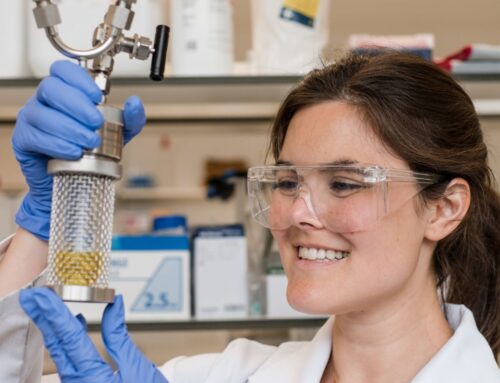
John Mackenzie
Director (Scotland), Pioneer Group
John is an experienced Director and CEO with a demonstrated history of leading in the life sciences industry. A strong business development professional skilled in Business Planning, Event Management, Biotechnology, Management, Asset Management, Start-ups and Scale-ups, John oversees our two sites in Scotland; BioCity Glasgow and Edinburgh Technopole.
British industry has had better days. The number of new cars made in the UK has sunk to its lowest level in 66 years, financial services firms are laying off staff en masse, and construction output has flatlined. Never, then, has there been a more important time to harness the potential of sectors that will maintain Britain’s ability to compete on the global stage, like technology and life sciences.
In January, Chancellor Jeremy Hunt gave a speech at Bloomberg’s headquarters, saying that he wants to “turn the UK into the world’s next Silicon Valley”.
The UK government has been throwing its support behind research and development for some time now in the form of industrial strategies, funding packages and changes to the tax system. But if ministers and policymakers are serious about transforming Britain into a science supercluster akin to those found in the United States, industries like life sciences will need long-term strategic direction, rather than piecemeal approaches that can be binned at the drop of a hat.
When comparing the UK’s life sciences sector with that of the US, it’s difficult to ignore the fact that our cousins across the pond seem far more successful in commercialising research and discovery.
Commercialisation Gap
The reasons for this commercialisation gap are plentiful, but one of the main pain points is that the UK is experiencing a severe lack of space for promising start-ups to scale. Much of the work conducted by life sciences companies, pharmaceutical, industrial biotech, and other medical research fields, is simply impossible to conduct remotely. So unlike other sectors, like financial services, space is arguably just as important as funding when it comes to growing.
Scotland’s life sciences sector, which provides 42,000 jobs across 700 diverse businesses and higher education institutions, is primed for growth. Our country has one of the world’s highest concentrations of life sciences hubs – in areas like Glasgow, Dundee and Edinburgh, where sectors like industrial biotechnology, agritech and aqua culture flourish – world-leading universities, and healthcare systems.
Scotland’s abundance of world-class innovation is uniquely connected by a physical infrastructure and an appetite for collaboration that elevates opportunities and accelerates company growth. By bringing industry closer to people from healthcare, academia and government the network enables the community to overcontribute to global human and animal healthcare and planetary challenges and overperform in attracting research funding, inward investment and new, innovative start-ups.
But we are at an inflexion point. The old saying goes “Build it and they will come” which is very much the case for developers and operators in Scotland. Record-high demand combined with record-low supply means market fundamentals have never been stronger – from an investment perspective, developing more lab space is a no-brainer to retain and attract scale-up companies.




